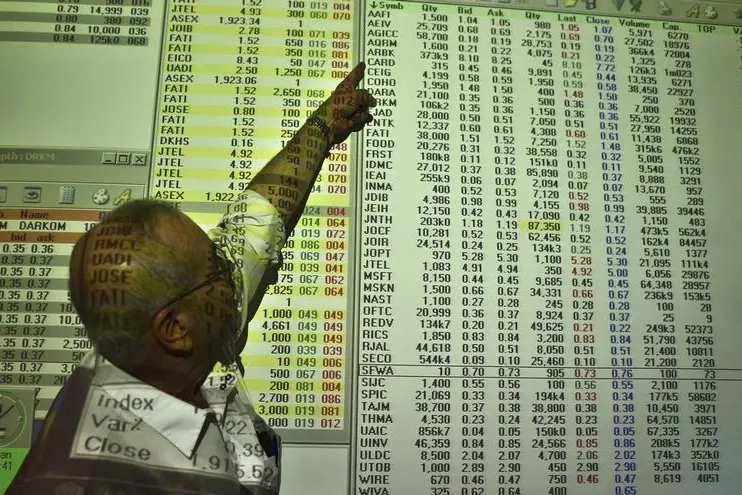PHOTO
AMMAN - The government on Saturday announced a package of tax incentives to stimulate investments in certain sectors.
At a press conference, Prime Minister Abdullah Ensour said the Investment Council, which he chairs, decided to grant tax incentives and exemptions to the ICT sector to increase its contribution to the economy.
The sector's contribution is currently estimated at 12 per cent.
The incentives, Ensour told reporters at the headquarters of the Jordan Investment Commission (JIC), are also aimed at creating new jobs and boosting ICT exports.
Under the decision, services related to software development, mobile apps, website portals, outsourcing, digital content and electronic games, information technology training and e-learning will be exempted from sales tax and customs duties, the premier said.
Goods and services necessary for ICT services will also be subject to a zero sales tax rate, ICT Minister Majd Shweikeh said, adding that income tax rates on such services will be reduced by 30 per cent for 10 years, a move that could be extended.
Ensour also announced a package of tax incentives for the transportation sector in an attempt to improve its performance and passenger experience.
Companies operating Bus Rapid Transit services between cities will be exempt from paying sales tax and customs duties, he said, explaining that similar exemptions will be given to firms operating at least 20 public transport buses that are brand new at the time of applying for registration, and the vehicles should be environment-friendly.
The companies must also enjoy a clean record with regard to traffic accidents and violations.
The premier said the Kingdom's public transport system lags behind other nations and the incentives would encourage private sector investment that would in turn improve services.
Tax exemptions and incentives were also extended to a number of projects that benefited from the previous tax law, enabling the purchase of fixed assets to establish the projects, according to Ensour.
JIC President Montaser Oqlah said there are 76 such investments.
The council also decided to exempt profits generated from commercial activities in free zones from income tax.
The prime minister said in the next 10 to 20 years, income tax on investment projects in remote areas will be reduced by between 30 and 80 per cent, explaining that the measure seeks to encourage investors to expand into areas considered less developed.
He elaborated that these less-developed areas were classified into four zones.
The Investment Council also decided to allow non-Jordanians to have ownership in land transport provided their share does not exceed 49 per cent.
Ensour added that the latest decisions also included new regulations for labour and work permits in free and development zones, limiting some professions to Jordanians only.
One of the main measures Ensour announced was exempting insurance firms willing to merge, from income tax for three years in addition to exemptions on fees for registering ownership, and transferring and raising capital.
The council also approved a request by the Hashemite Fund for Development of Jordan Badia to establish a development zone in Maan for livestock.
The project will be built on 1,500 dunums of land in the Mohammadiya area in the southern governorate to set up a regional hub for livestock trading and marketing animals, with the first phase implemented in coordination with Saudi Arabia, the premier explained.
The second phase will include breeding and facilities for re-export, slaughterhouses, factories for preparing meat for domestic and international markets, a recycling plant laboratories, and large livestock yards.
Oqlah said the value of the project would be around $1 billion (around JD700 million) and it is expected to generate over 700 jobs.
© Jordan Times 2015





















